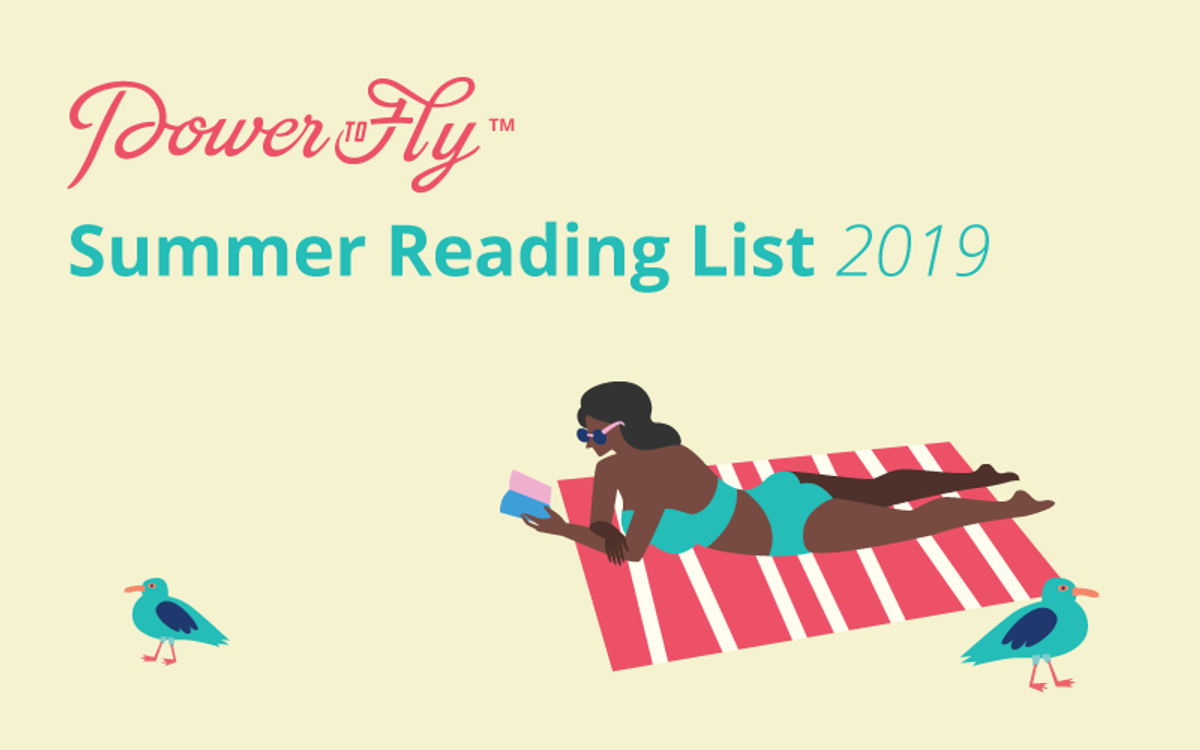Which is why I went behind the scenes to dig up 13 thirst-quenching reads recommended by our team at PowerToFly that will keep you busy this summer.
From cyberpunk political thrillers and sci-fi adventures (with female protagonists!), to eye-opening memoirs and self-help books from diverse authors, we proudly present our summer reading list 2019 — in no particular order.
Let us know which book you decide to take on, or if you think we missed one!
1.Educated
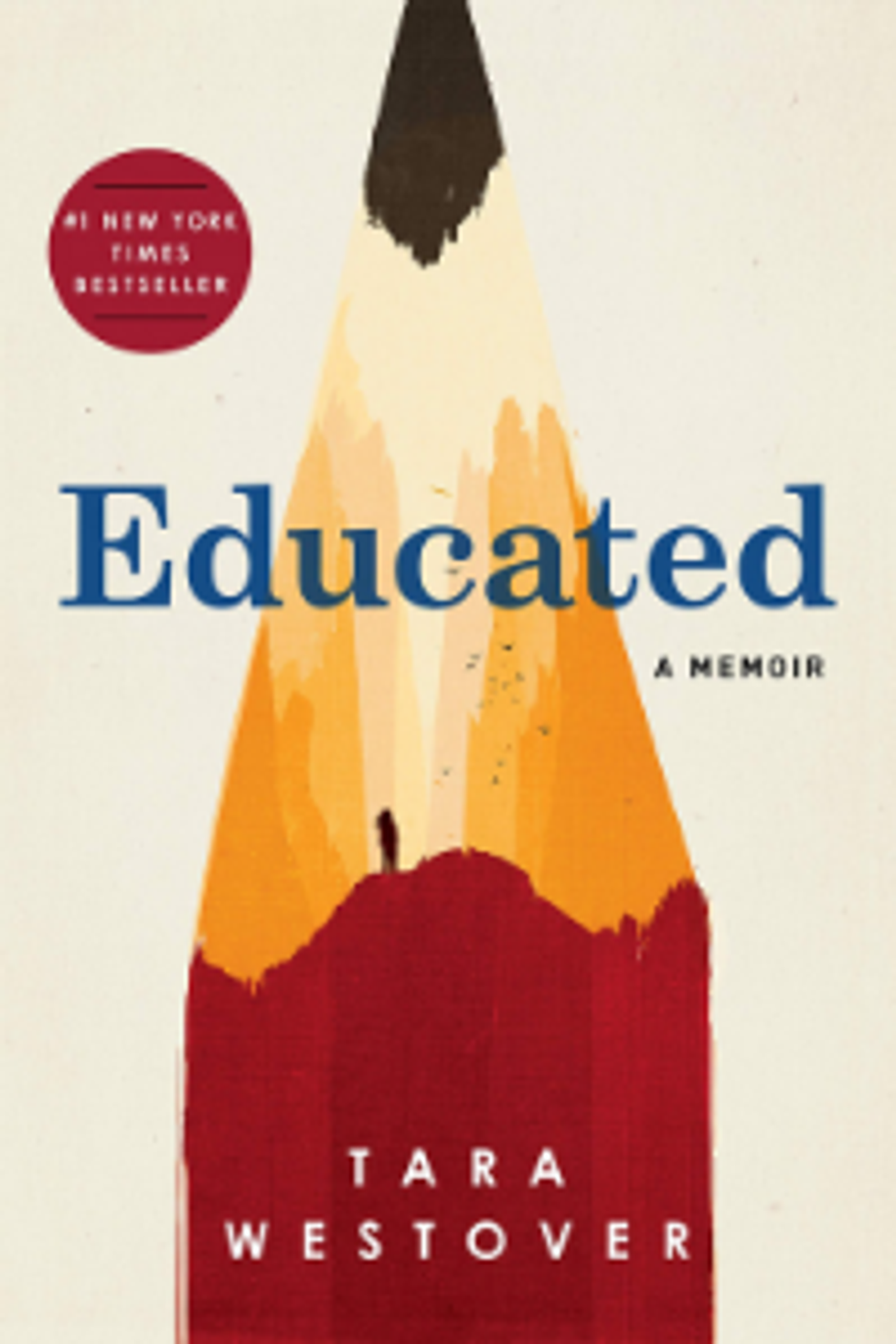
"An amazing story, and truly inspiring. The kind of book everyone will enjoy. It's even better than you've heard."—Bill Gates
A PowerToFly top pick because: We were so moved by Tara's rebellious and inventive spirit! A woman with an unconventional family lifestyle, determined to change her perspective and overall world view. Tara's boldness, and drive to take responsibility for her own education, represents a real character we can learn from and develop with as the novel progresses.
2.The Bucket List
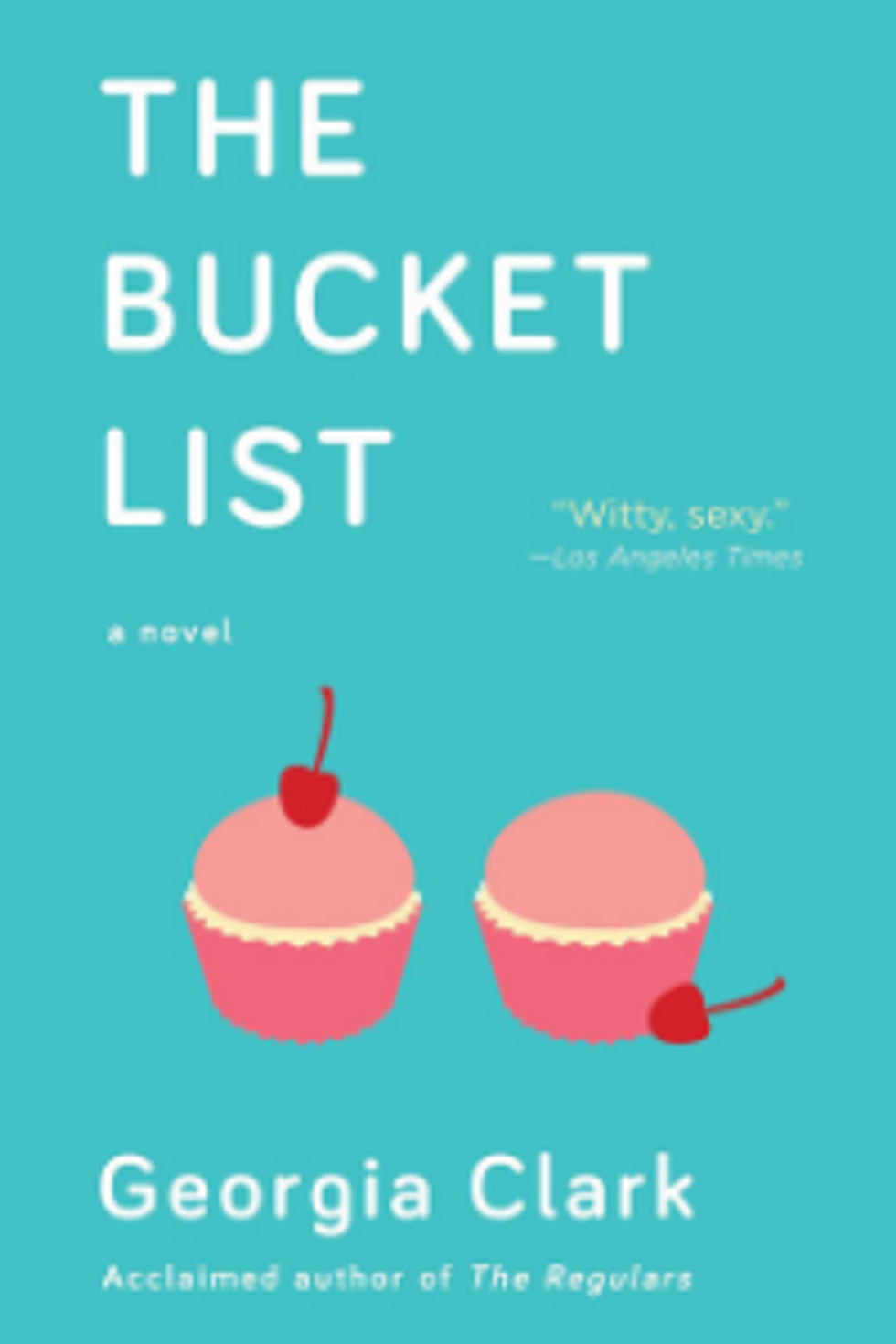
"The second I finished The Bucket List, I hugged it. Like, literally. I clutched it to my chest and wailed." - Jenny, Goodreads
A PowerToFly top pick because: We fell in love with Georgia Clark when she sat down and chatted with us last year and shared some of her creative writing tips with our community. Her newest book, The Bucket List, is a fun, quick witted story about a serious topic - genetic predisposition to the BCRA1 gene mutation: the "breast cancer" gene, something more women should be talking about!
3.The Warmth of Other Suns: The Epic Story of America's Great Migration
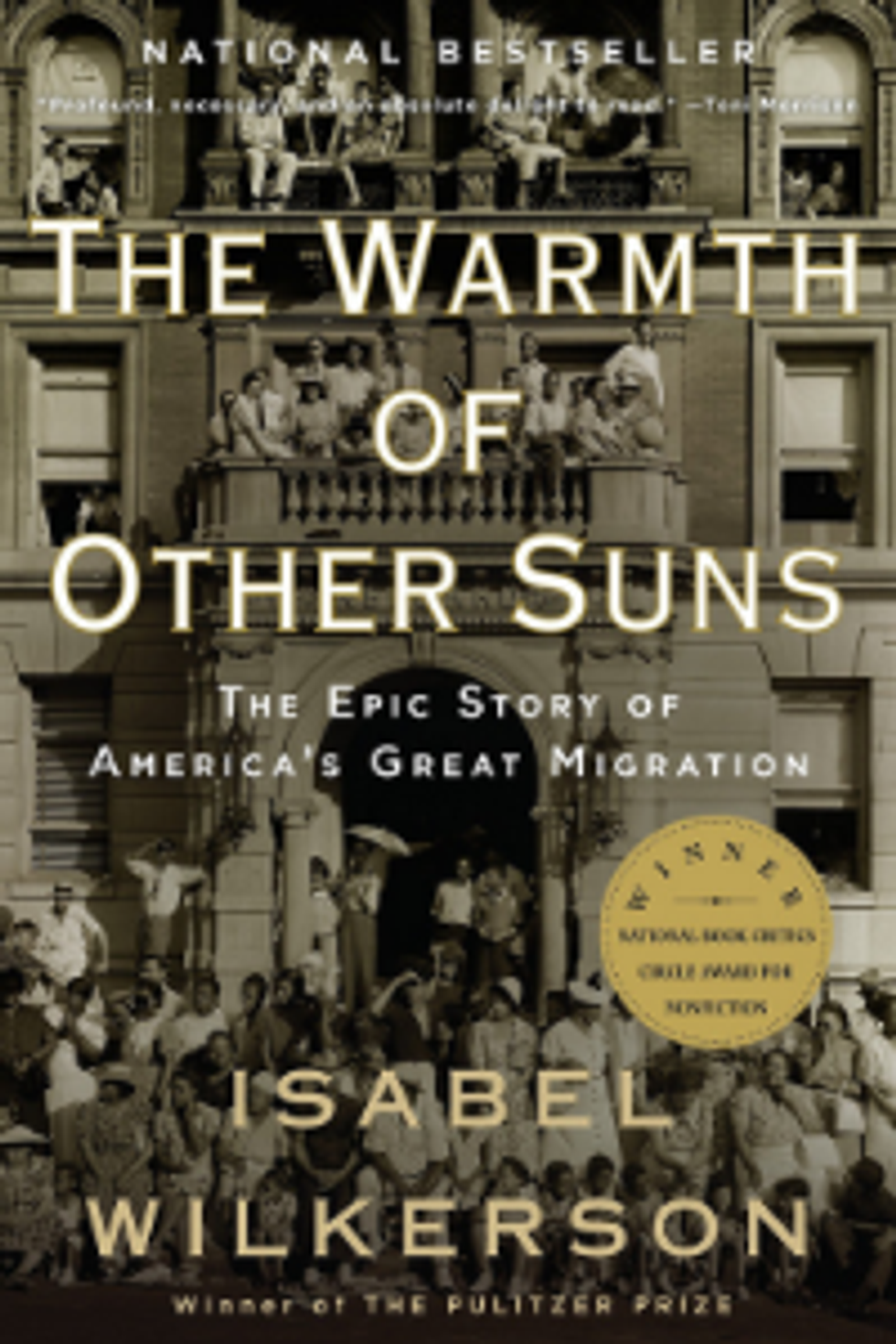
Wilkerson won the Pulitzer Prize for her work as Chicago Bureau Chief of The New York Times in 1994, making her the first black woman in the history of American journalism to win a Pulitzer and the first African-American to win for individual reporting. In 2016, President Barack Obama awarded her the National Humanities Medal for "championing the stories of an unsung history."
A PowerToFly top pick because: We recognize that there are so many stories that have been unjustly left out of our history books. These forgotten stories certainly have their effects on modern culture and influence the way tiny conversations are swallowed and transmuted into something else or shared and evolved into a healing dialogue. This lyrical piece of non-fiction brings to light a part of our culture, to spark a new conversation.
4.Women Who Run With Wolves
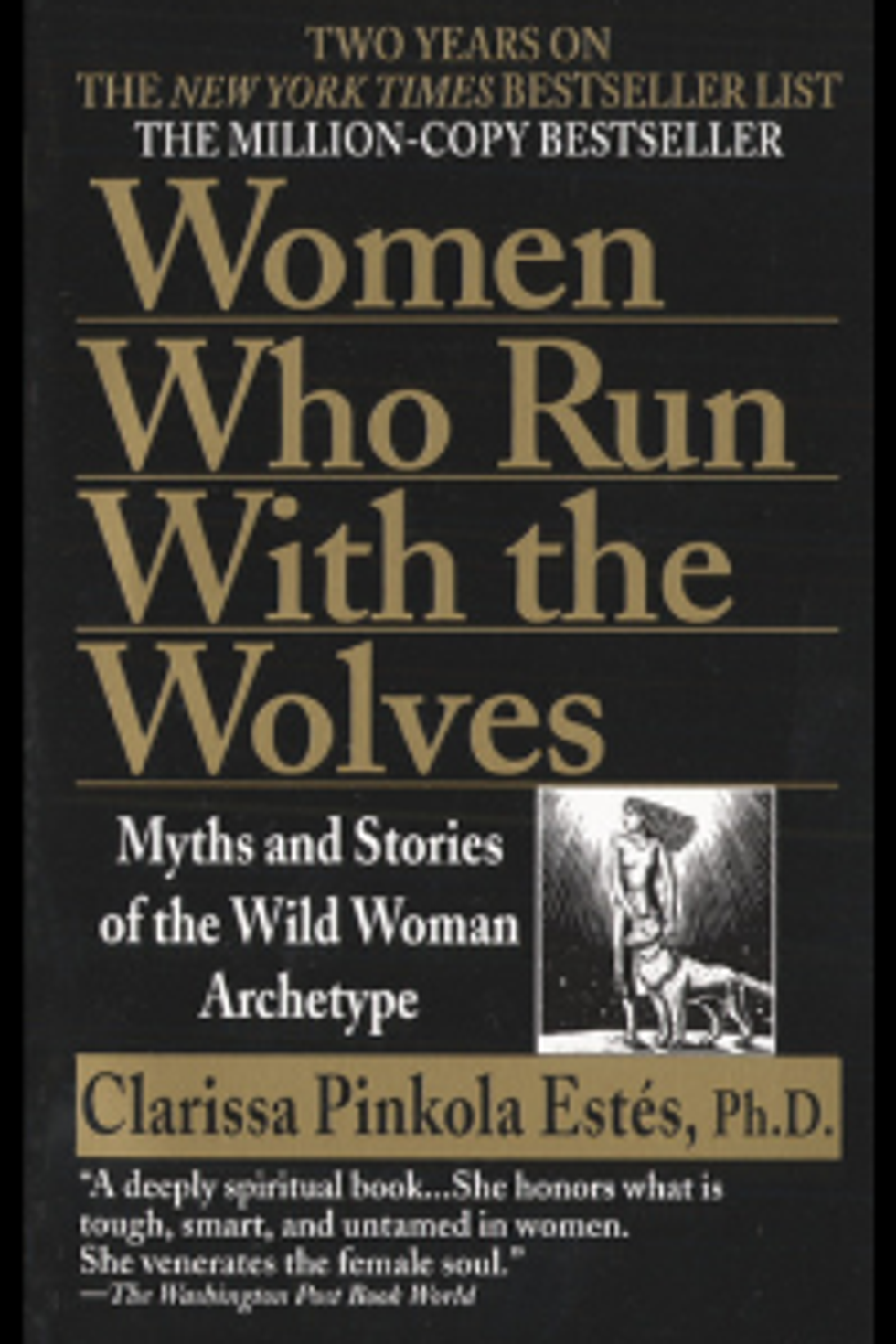
"I am grateful to Women Who Run with the Wolves and to Dr. Clarissa Pinkola Estés. The work shows the reader how glorious it is to be daring, to be caring, and to be women. Everyone who can read should read this book."—Maya Angelou
A PowerToFly top pick because: This book is an excellent resource for those who feel as if they've lost their voice or are afraid to use it. An overwhelming response from our PowerToFly community comes from those who feel nervous, discouraged, or invisible in their current situation. Clarissa Pinkola Estés uses her medical knowledge and assorted roots to reveal how we can give territory and voice to the wild woman inside each of us.
5.Her Body and Other Parties

"[Machado's] use of a vivid experimental lens to show women struggling for agency is startling."―The New Yorker
A PowerToFly top pick because: This is a collection of short stories that beautifully experiments with surreal, fantastical, and at times undeniably palpable narratives which aim to question unique experiences and perspectives of the contemporary and complicated women we know today. An investigation of intellect, identity, sex, gender, and mental health -- these stories may ring true for your neighbor or may be something you identify with on a more personal level.
6.Becoming

A PowerToFly top pick because: As a daily quoted resource by the PowerToFly team, 'Becoming' has sparked a new confidence in our leaders who value the challenges Michelle Obama faced during her path to become one of the greatest leaders of all time. She candidly reveals the challenges women of color face, navigating the white-washed waters of the mighty systems that raise us and employ us. As citizens of the world and instigators of positive change, we find her story very insightful and encouraging as she unabashedly brings us to question how we can redesign the system of employment and acknowledge the root of one big challenge our free world is chasing: equal opportunity.
7.Ambition Redefined: Why the Corner Office Doesn't Work for Every Woman & What to Do Instead
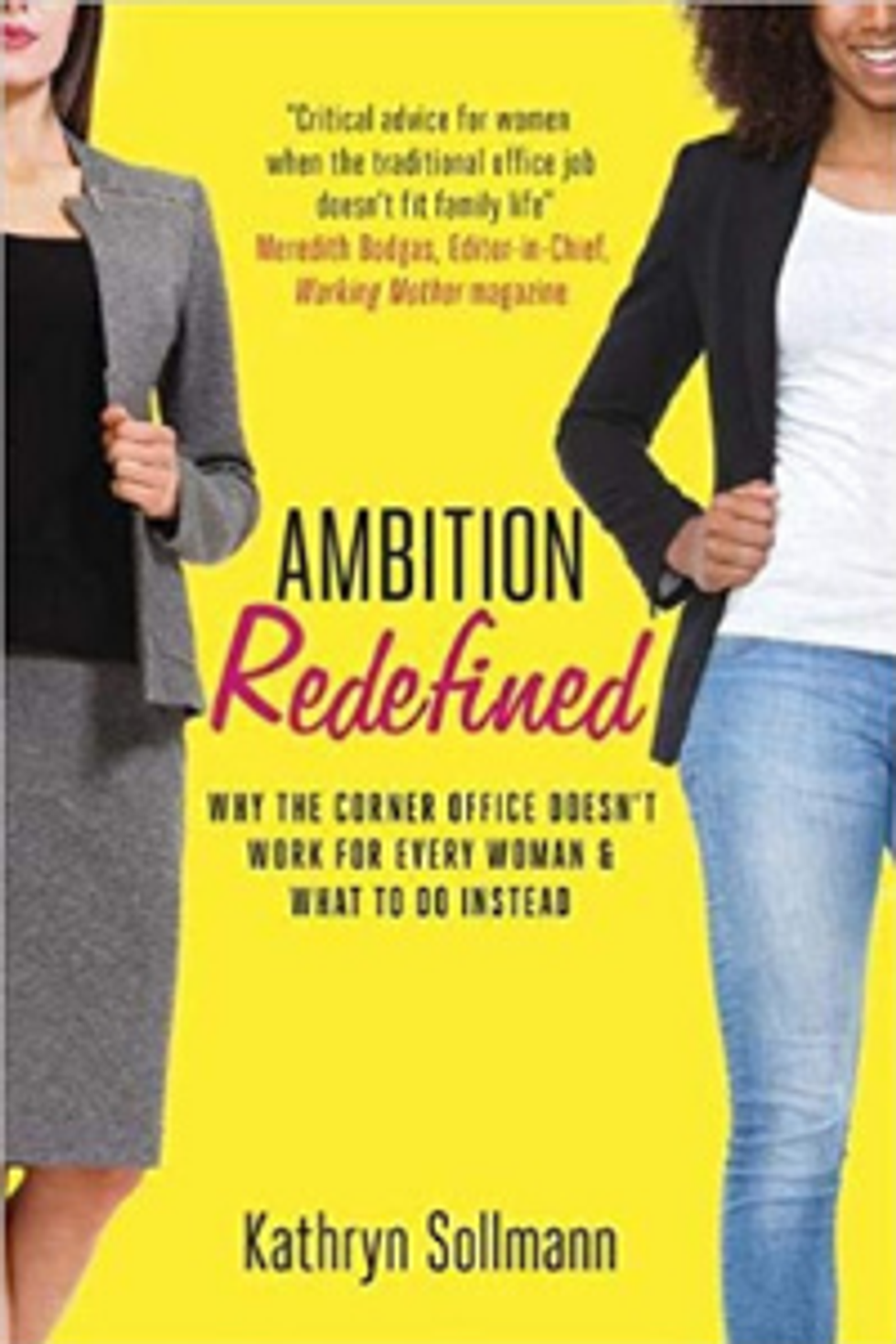
"Moms' family schedules don't always meld with a 9-to-5, in-office, 5-day-a-week job, which is why the advice here is critical, so mothers can keep caring for their children and gain financial stability."―Meredith Bodgas, Editor-in-Chief of Working Mother magazine
A PowerToFly top pick because: The most common questions we are asked at PowerToFly revolve around flexibility at work - we sat down and talked with Kathryn Sollmann about how to ask for a flexible job just a few months ago. This book outlines everything you need to know about asking for more flexibility - whether you're a job seeker, new parent, or someone looking for a little more "you" time.
8.Infomocracy: Book One of the Centenal Cycle
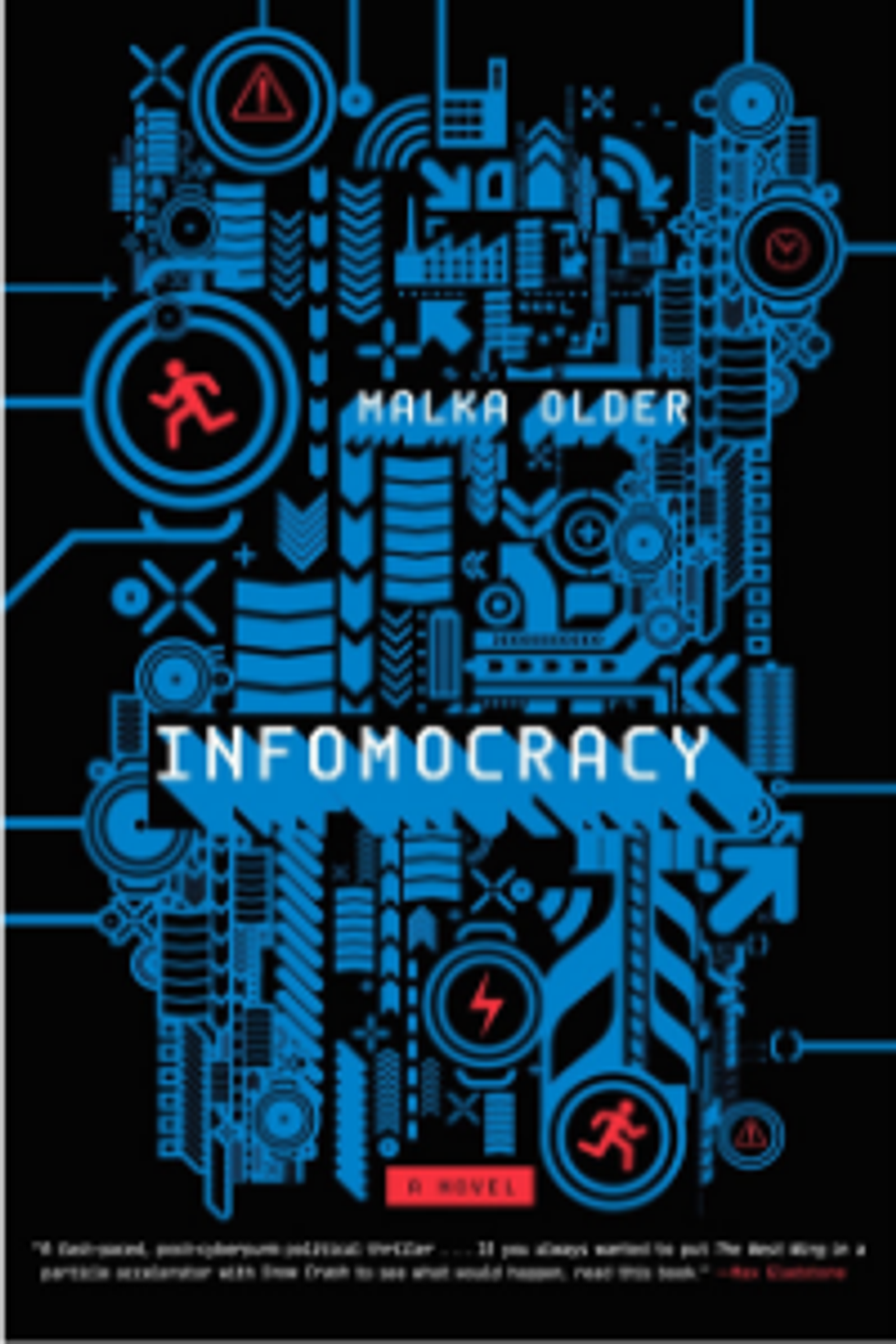
"Science fiction for election nerds and for media geeks. I highly recommend it." ―BookRiot
A PowerToFly top pick because: While we anxiously await the next seasons of Black Mirror and The OA on Netflix, this book fills the gap with a complex and highly upbeat story that will totally consume you. Chances are, you'll be called to flip back and read again in order to fully understand this very SciFi (almost real) version of humanity. It's no surprise that as a reader, you're left with a very humanitarian outlook on the world - when she isn't writing, Malka Older holds her ground as a Senior Fellow for Technology and Risk at the Carnegie Council for Ethics in International Affairs.
9.Don't Hook Up With the Dude in the Next Cube: 200+ Career Secrets for 20-Somethings

"Nancy A. Shenker is a marketing innovator, brand-builder, writer, speaker, and self-proclaimed rule-breaker and gadget geek."
A PowerToFly top pick because: Nancy Shenker is just like us - a mom of two grown daughters with experiences from blogging to becoming the CEO of her own company. We loved hearing her '20 lessons over 40 years' and while the title may be a little provocative, the content is anything but. Nancy shares some real talk when it comes to dealign with hard topics at work, like building real professional relationships and how to approach finding a mentor.
10.Better Allies: Everyday Actions to Create Inclusive, Engaging Workplaces
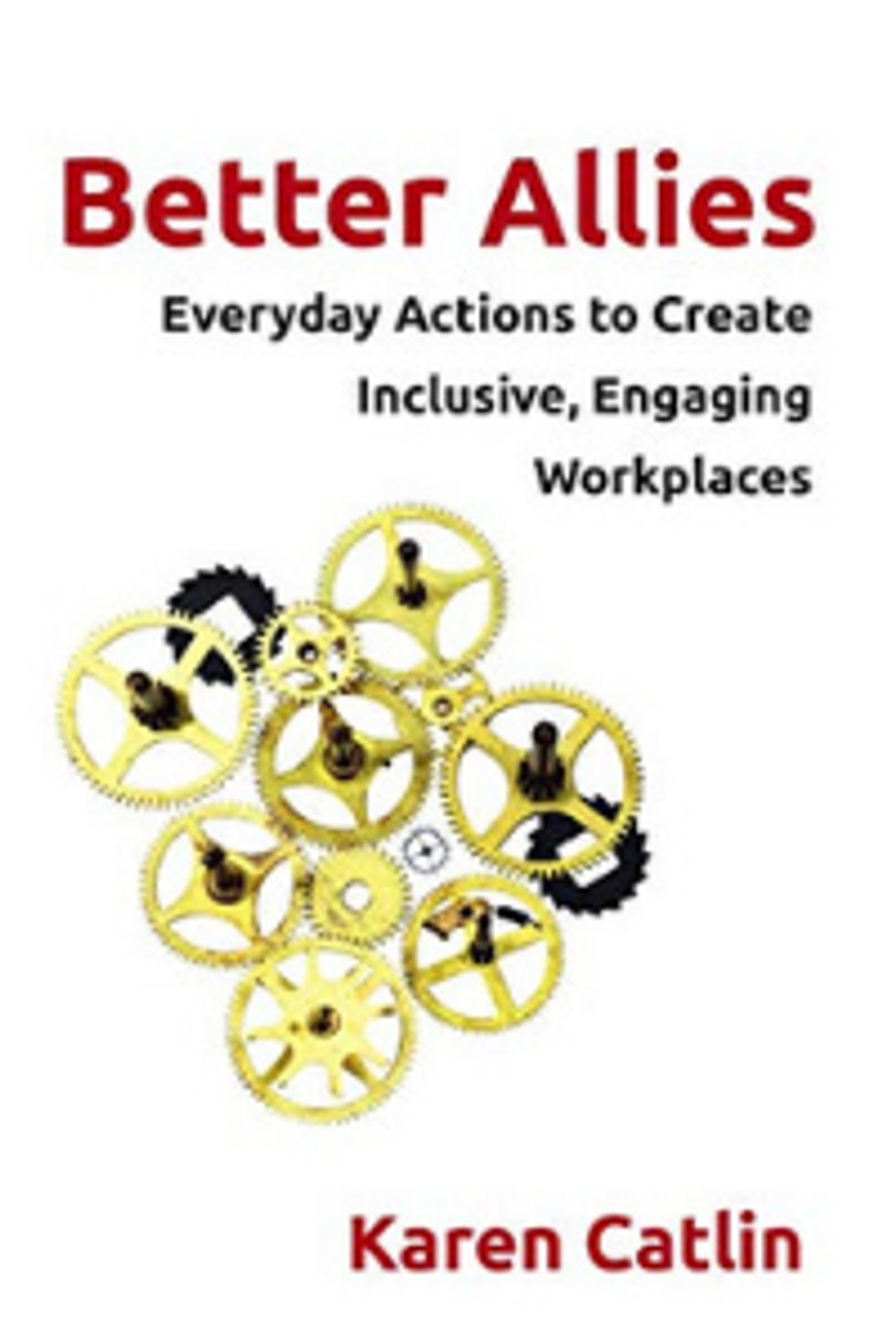
"Better Allies demystifies the work of allyship in an actionable, approachable, and blame-free way. The book introduces key concepts necessary to effective allyship with concrete examples and case studies, and offers a myriad of positive actions we can all take on our journey to be better allies in our workplace and our personal lives." —Caroline Simard, PhD, Managing Director, Stanford VMWare Women's Leadership Innovation Lab
A PowerToFly top pick because: We can all become better allies. Karen Catlin gave us some really great tips (and one-liners!) for how you can respond to uncomfortable situations at work, and become a better ally to your peers and coworkers. We got a high level overview during our chat with Karen, but this book dives way deeper into how you can create a more inclusive environment at your company!
11.The New Jim Crow: Mass Incarceration in the Age of Colorblindness
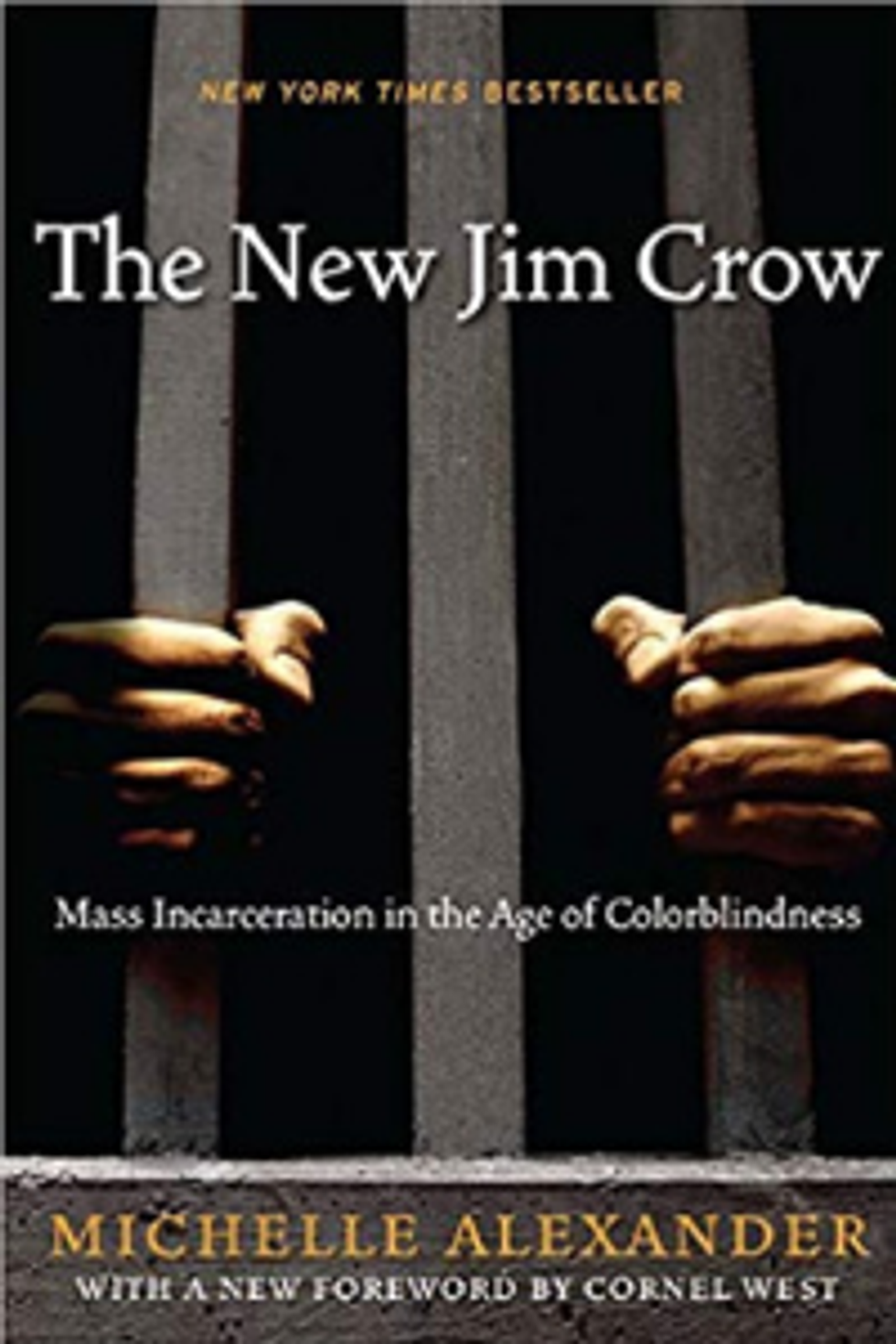
"Alexander is absolutely right to fight for what she describes as a "much-needed conversation" about the wide-ranging social costs and divisive racial impact of ourcriminal-justice policies."—Newsweek
A PowerToFly top pick because: We loved this quote from Michelle Alexander, civil-rights-lawyer-turned-legal-scholar "we have not ended racial caste in America; we have merely redesigned it." Michelle gives sight to the bigger discrimination issues our country is facing as we strike towards a new social movement.
12.Babel-17

[Babel-17] winner of the Nebula Award for best novel of the year, is a fascinating sci-fi thriller taking place in space and centering a woman leader protagonist.
PowerToFly picked because: Growing up burdened and bullied with questions about his bi-racial family and sexual identity, this powerfully written book by the self-proclamed black and gay Samuel R. Delany, is just what the literature world needs in a time of such strong discrimination. Written from an unexpected perspective, Samuel pushes the diversity meter up and empowers more authors to share their stories with confidence and flavor!
13.Mama's Girl
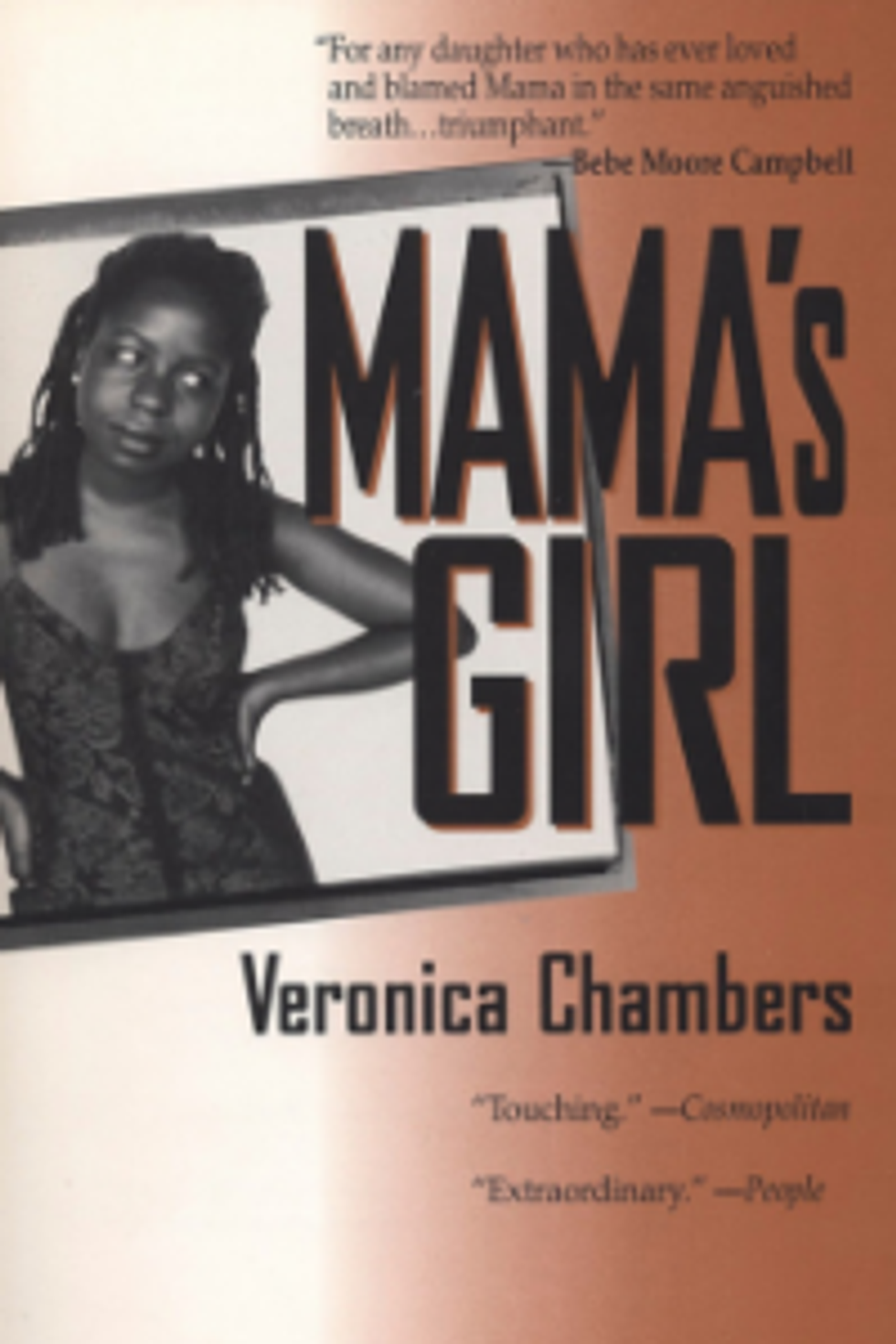
"A troubling testament to grit and mother love...While the story of her own achievement under grim, often violent circumstances is extraordinary, the reader is left feeling particularly grateful for [Chambers's] compassion." —The New Yorker
PowerToFly picked because: In this memoir with great lyricism, Veronica Chambers shares her story of the bond she had with her immigrant mother growing up an Afro-Latina woman from Brooklyn, New York. This novel touches on the hardship and triumph many women still face today - raising families or growing up with low income, and rising to the top. Now added to the required reading list for both colleges and high schools around the US - it's time for us to back-read!
---
Whether you're embarking on your first summer internship or taking your first vacation in over a year after founding your startup, these books are sure to keep your mind stimulated this summer.
What are you reading that we should add to our 2019 summer reading list? Tweet us @powertofly or send us a message on Facebook or Instagram!
- 1. Educated
- 2. The Bucket List
- 3. The Warmth of Other Suns: The Epic Story of America's Great Migration
- 4. Women Who Run With Wolves
- 5. Her Body and Other Parties
- 6. Becoming
- 7. Ambition Redefined: Why the Corner Office Doesn't Work for Every Woman & What to Do Instead
- 8. Infomocracy: Book One of the Centenal Cycle
- 9. Don't Hook Up With the Dude in the Next Cube: 200+ Career Secrets for 20-Somethings
- 10. Better Allies: Everyday Actions to Create Inclusive, Engaging Workplaces
- 11. The New Jim Crow: Mass Incarceration in the Age of Colorblindness
- 12. Babel-17
- 13. Mama's Girl
